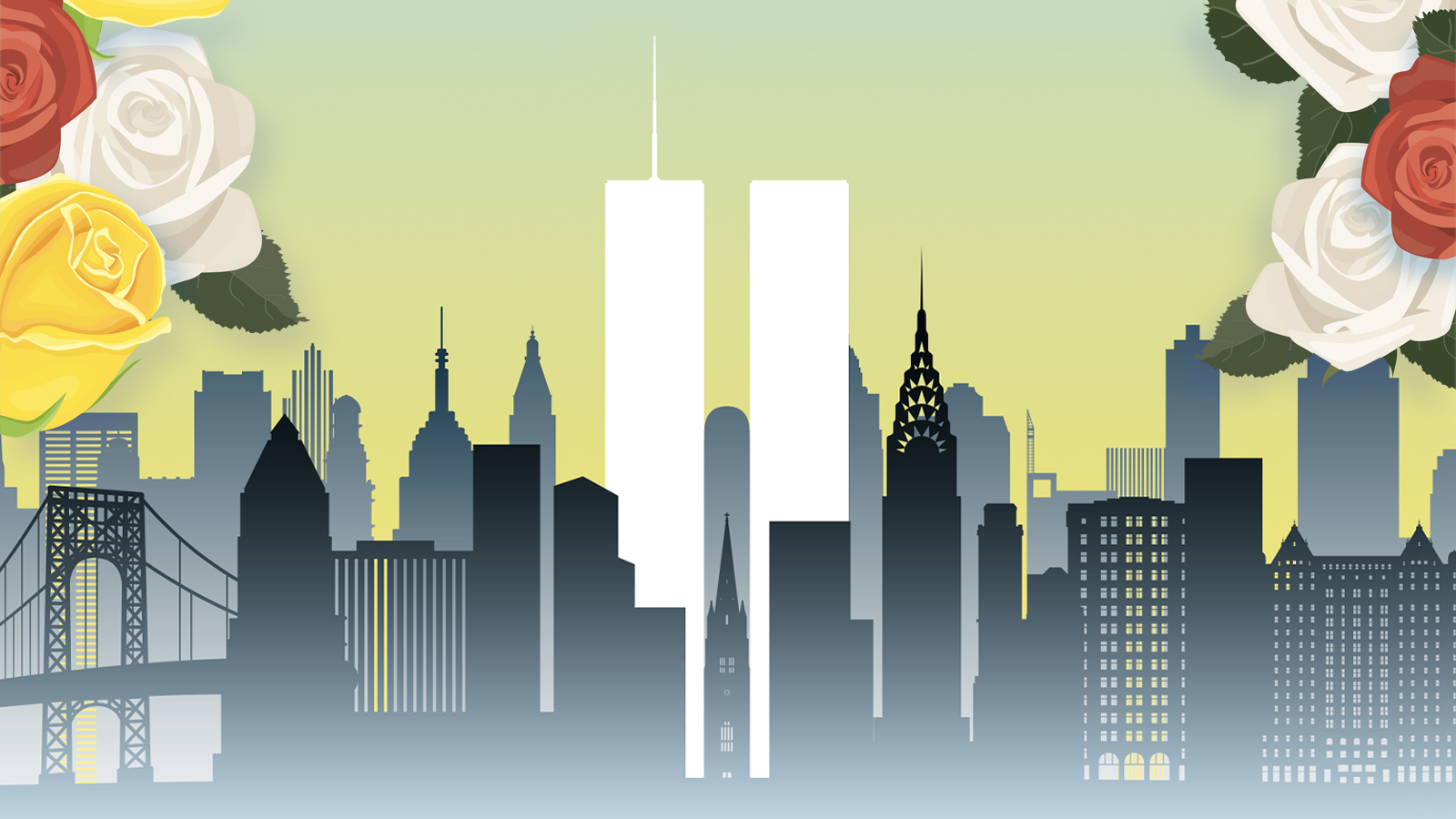What 9/11 means to kids
How Generation Alpha thinks about a day that happened before they were born but looms so large in our nation's consciousness


A free daily email with the biggest news stories of the day – and the best features from TheWeek.com
You are now subscribed
Your newsletter sign-up was successful
We all have our memories of Sept. 11, 2001 — where we were that day, how we felt when we realized that two planes crashing into the World Trade Center wasn't an accident, what happened in the minutes, hours, and days afterwards. I run through the day in my mind every year, from the moment the first plane hit while I was in my office at Child magazine in midtown Manhattan, to the scramble to get our staff out of the building and someplace safe with bridges and tunnels closed and without public transportation or cell phones working, to the strangely quiet and solitary 80-block walk north to my husband's office, to the hours-long wait until we could leave the city and get home to our 2-year-old son. We got home. We were fine. We were lucky.
This year, on the 20th anniversary of 9/11, the replay started earlier and was somehow more vivid and emotional. And it came with a new question. As the editor of The Week Junior, a newsmagazine for children ages 8-14, I asked myself: What does this generation of kids, Generation Alpha, think about this day that happened before they were born but looms so large in our nation's consciousness?
I called Larry Balter, professor emeritus of applied psychology at New York University. He was working at NYU on 9/11. From his home on Bleecker Street one mile from Ground Zero, he saw the planes crash and the buildings collapse out his window. Afterward, he led workshops with New York City parents to guide them in helping their children cope with what happened.
The Week
Escape your echo chamber. Get the facts behind the news, plus analysis from multiple perspectives.

Sign up for The Week's Free Newsletters
From our morning news briefing to a weekly Good News Newsletter, get the best of The Week delivered directly to your inbox.
From our morning news briefing to a weekly Good News Newsletter, get the best of The Week delivered directly to your inbox.
I talked to Balter about Generation Alpha. Born starting in 2012, they are the first complete generation not to have experienced Sept. 11 firsthand. Some experts say that for them, 9/11 is history — something that happened a long time ago and is taught, in various ways depending on the grade and the school district, in social studies class.
Balter and I discussed an alternative view. "There's something different about this," he said. "It's not the same as World War I or World War II. There is actually a straight line that connects what happened 20 years ago to today."
As a result of the attacks on 9/11, the U.S. entered two wars, in Afghanistan and Iraq. The withdrawal from Afghanistan, which kids saw happening in real time last month, is a thread that traces back 20 years. "It's like a current event in that way," Balter said.
Kids also have frequent reminders of 9/11 — something else that sets it apart from other historical events. They have to wait in long lines at airports. They might walk by a firehouse and see a memorial to firefighters who died that day. They may have a family member who served in the military, works for the TSA, or is a first responder. Maybe one of their relatives lived in New York, Washington, D.C., or Pennsylvania on 9/11 and has talked about it. Maybe a friend's parent is a pilot who has to take different security precautions now. "Kids have these direct and indirect connections and are reminded all the time," Balter said.
A free daily email with the biggest news stories of the day – and the best features from TheWeek.com
It's also in the nation's vocabulary — and kids will be hearing a great deal about the day as the 20th anniversary approaches. The advice experts gave about talking to children immediately after 9/11 still applies today. Start by finding out what they know, regardless of their age. Let them ask questions. Answer them honestly. (This briefing for kids we put together can help.) Give them a chance to say how they feel. Talk to them about all the people who helped.
And reassure them that they're safe. No, you can't guarantee it — they know 9/11 happened and could happen again. "But reassure them, truthfully, anyway," Balter says. We're doing everything we can to keep the U.S. safe. There are lots of measures in place to protect us, including special units of the government. We're here to take care of you.
Keep in mind that anti-Muslim prejudice could surface again, as it did 20 years ago. Correct any inaccuracies and reinforce your family's values. The vast majority of Muslims don't believe what the terrorists believe. Prejudice is hurtful and wrong.
After something terrible happens, many children have a natural urge to help. Thousands of kids, from all across America, sent letters and drawings to thank and comfort the first responders after 9/11. Twenty years later, kids can still help — and doing so can, in turn, help them. "Doing something meaningful makes you feel better psychologically," Balter says. Sept. 11 is a National Day of Service and Remembrance, with opportunities to give back in communities across the country. Kids could bring cookies or homemade cards to local firehouses. If you have relatives or friends who experienced loss on Sept. 11, call them to say you're thinking of them. Or simply observe a moment of silence at 8:46 am ET, the time when the first plane crashed.
Any of these activities demonstrates caring and shows that you understand the ongoing impact of 9/11. "It happened before kids were born but is ever present," Balter says. "It's not a far-off event. We're living it still."
Andrea Barbalich is editor in chief of The Week Junior, a weekly newsmagazine for children ages 8 to 14 launching this spring from the publisher of The Week.
